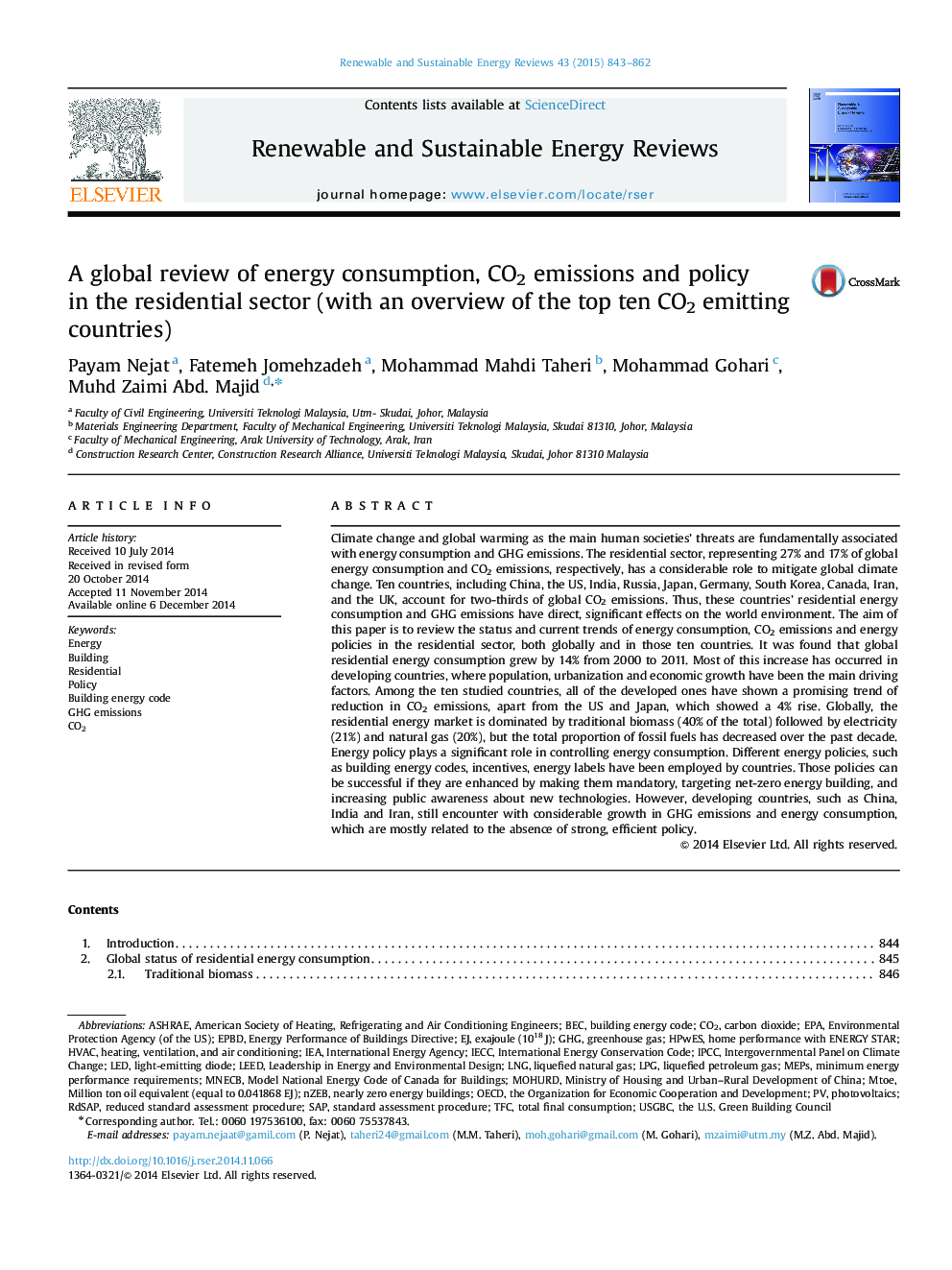| Article ID | Journal | Published Year | Pages | File Type |
|---|---|---|---|---|
| 8118005 | Renewable and Sustainable Energy Reviews | 2015 | 20 Pages |
Abstract
Climate change and global warming as the main human societies' threats are fundamentally associated with energy consumption and GHG emissions. The residential sector, representing 27% and 17% of global energy consumption and CO2 emissions, respectively, has a considerable role to mitigate global climate change. Ten countries, including China, the US, India, Russia, Japan, Germany, South Korea, Canada, Iran, and the UK, account for two-thirds of global CO2 emissions. Thus, these countries' residential energy consumption and GHG emissions have direct, significant effects on the world environment. The aim of this paper is to review the status and current trends of energy consumption, CO2 emissions and energy policies in the residential sector, both globally and in those ten countries. It was found that global residential energy consumption grew by 14% from 2000 to 2011. Most of this increase has occurred in developing countries, where population, urbanization and economic growth have been the main driving factors. Among the ten studied countries, all of the developed ones have shown a promising trend of reduction in CO2 emissions, apart from the US and Japan, which showed a 4% rise. Globally, the residential energy market is dominated by traditional biomass (40% of the total) followed by electricity (21%) and natural gas (20%), but the total proportion of fossil fuels has decreased over the past decade. Energy policy plays a significant role in controlling energy consumption. Different energy policies, such as building energy codes, incentives, energy labels have been employed by countries. Those policies can be successful if they are enhanced by making them mandatory, targeting net-zero energy building, and increasing public awareness about new technologies. However, developing countries, such as China, India and Iran, still encounter with considerable growth in GHG emissions and energy consumption, which are mostly related to the absence of strong, efficient policy.
Keywords
OECDIPCCIEAEPAGHGBECASHRAELNGTFCnZEBEPBDLEEDLPGTotal final consumptionMtoestandard assessment procedureInternational energy agencyGHG emissionsEnergyHVACPolicylight-emitting diodeCarbon dioxideLEDLeadership in Energy and Environmental DesignBuildingNearly zero energy buildingsSAPEnergy performance of buildings directivePhotovoltaicsMOHURDResidentialMEPsIntergovernmental Panel on Climate ChangeBuilding energy codeCO2Liquefied natural gasliquefied petroleum gasGreenhouse gasheating, ventilation, and air conditioning
Related Topics
Physical Sciences and Engineering
Energy
Renewable Energy, Sustainability and the Environment
Authors
Payam Nejat, Fatemeh Jomehzadeh, Mohammad Mahdi Taheri, Mohammad Gohari, Muhd Zaimi Abd. Majid,
